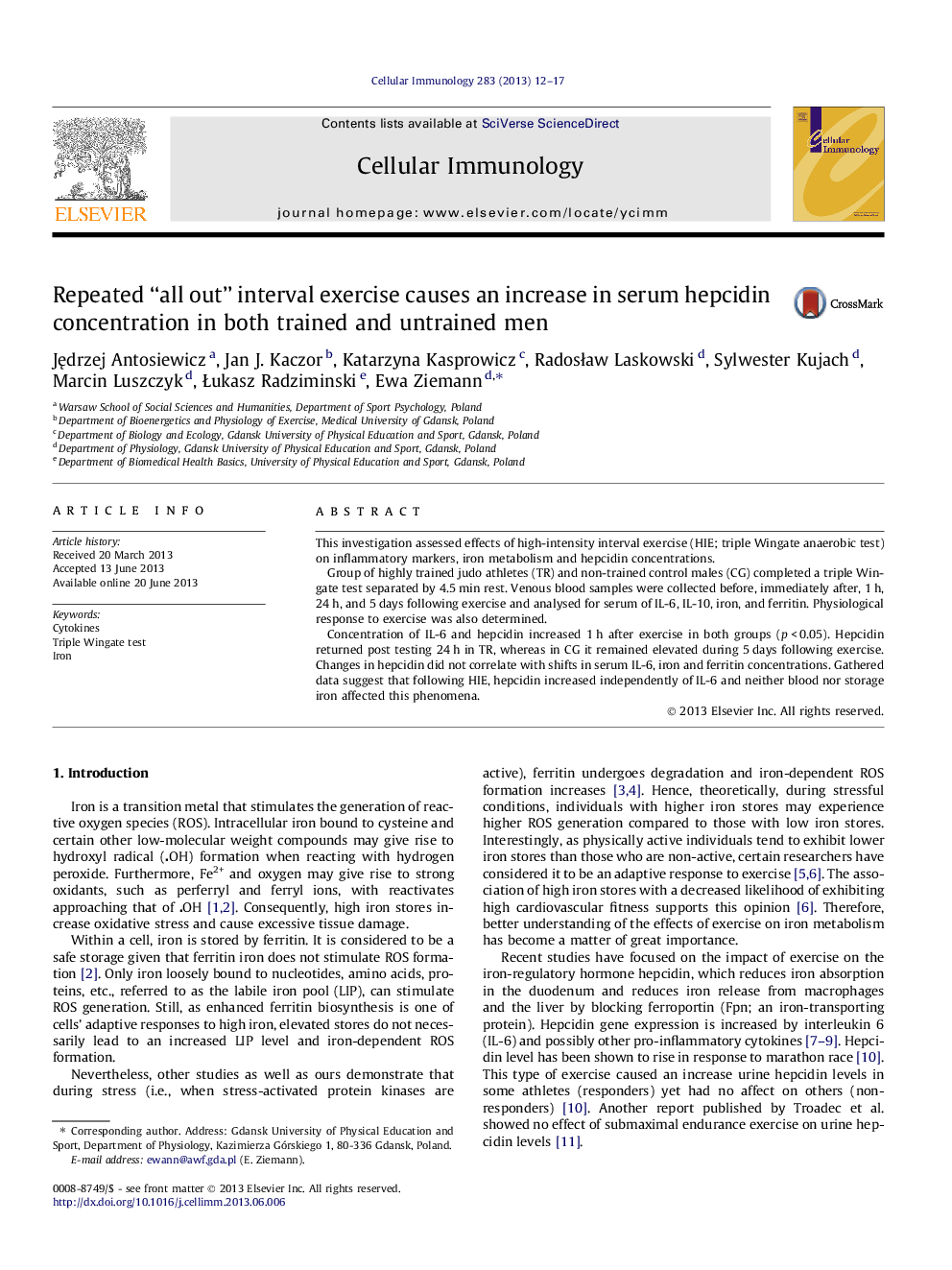| Article ID | Journal | Published Year | Pages | File Type |
|---|---|---|---|---|
| 2167098 | Cellular Immunology | 2013 | 6 Pages |
•The low volume high intensive interval exercise causes an increase in serum hepcidin.•Hepcidin response to the exercise is similar in trained and untrained subjects.•Trained subjects are characterised by higher hepcidin concentration at rest.•Changes in hepcidin did not correlate with shifts in serum IL-6, iron and ferritin concentrations.
This investigation assessed effects of high-intensity interval exercise (HIE; triple Wingate anaerobic test) on inflammatory markers, iron metabolism and hepcidin concentrations.Group of highly trained judo athletes (TR) and non-trained control males (CG) completed a triple Wingate test separated by 4.5 min rest. Venous blood samples were collected before, immediately after, 1 h, 24 h, and 5 days following exercise and analysed for serum of IL-6, IL-10, iron, and ferritin. Physiological response to exercise was also determined.Concentration of IL-6 and hepcidin increased 1 h after exercise in both groups (p < 0.05). Hepcidin returned post testing 24 h in TR, whereas in CG it remained elevated during 5 days following exercise. Changes in hepcidin did not correlate with shifts in serum IL-6, iron and ferritin concentrations. Gathered data suggest that following HIE, hepcidin increased independently of IL-6 and neither blood nor storage iron affected this phenomena.
